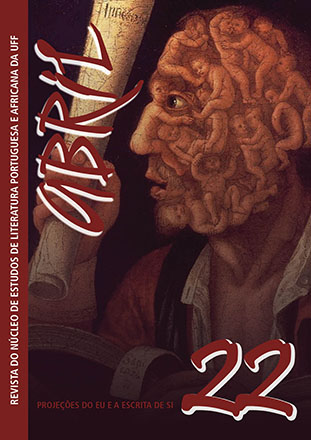Luandino, João Vêncio and their borrowed memories
DOI:
https://doi.org/10.22409/abriluff.v11i22.29984Keywords:
Memory, History, Luandino, João Vêncio.Abstract
Recording the memory of a fact, just as it happened, is not a trivial task, perhaps not even possible. Even when one seeks impartiality, when narrating something of the memory is inevitable its contamination by the repertoire and pre-existing cultural values in the universe of the narrator. But this does not happen only about individual memories: The finding that official history is also a discourse, therefore uttered by someone from somewhere, ends up establishing a relation between his studies and those that approach the discursiveness of memory. When it comes to literary fiction the issue gets even more complex. In this article, from the narrative João Vêncio: os seus amores, by Luandino Vieira, we intend to address issues related to fiction, memory and history. The narrator tells in first person his amorous memories to a fellow prisoner. The adventures and misadventures of João Vêncio gain a peculiar coherence when narrated from the point of view of an Angolan mestizo, oppressed by the colonizer. The chaining of arguments is offered with great skill, challenging the logic imposed by the dominant culture. Between the lines of the story of the loves of the narrator-character it is possible to glimpse aspects of the militant project claimed by Luandino Vieira. Thus, our reading will seek to highlight elements of resistance to colonialism and to identify how a certain point of view can influence the discursiveness of memory from its fictionalization.
Downloads
Downloads
Published
How to Cite
Issue
Section
License
I authorize the journal Abril - NEPA/UFF to publish the paper of my authorship/responsibility that I now submit, in case it is accepted for online publication.
Moreover, I declare that this contribution is original, that it was not submitted to any other editor for publication, and I sign the present declaration attesting the truth of all its contents.
The copyright of the works published at the virtual space of the journal Abril - NEPA/UFF are automatically entitled to the journal. Their total or partial reproduction is conditioned to the authors' citations and publication data.

Abril is licensed under a Creative Commons - Attribution-NonCommercial 4.0 International (CC BY-NC 4.0).









